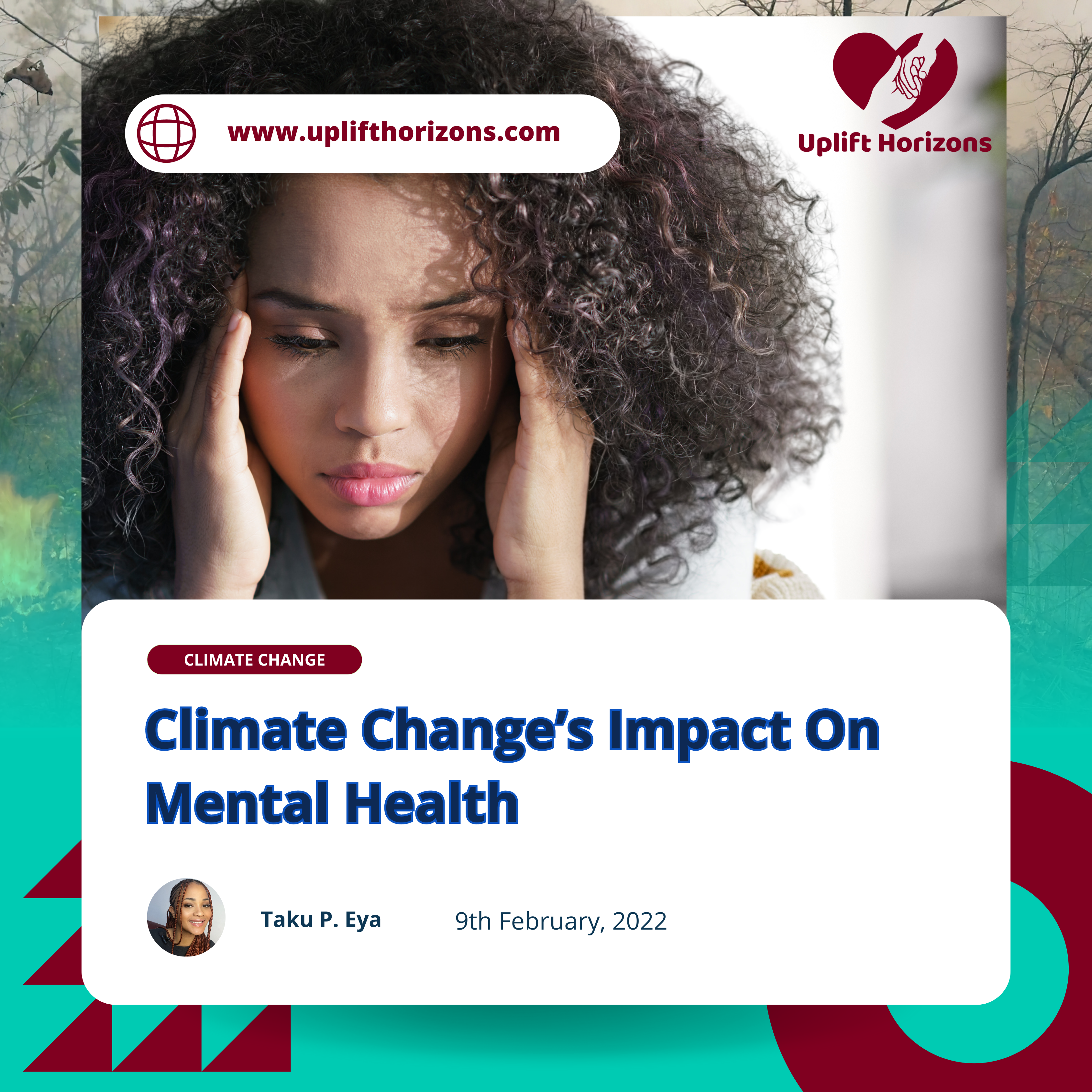Introduction:
Climate change is no longer just an environmental issue; it is increasingly recognized as a significant threat to mental health worldwide. As temperatures rise, extreme weather events become more frequent, and natural habitats are destroyed, individuals are experiencing heightened levels of stress, anxiety, and depression. Uplift Horizons delves into the intersection of climate change and mental health, exploring the profound impacts of environmental degradation on emotional well-being and advocating for holistic solutions to address this growing crisis.
Understanding the Link:
The effects of climate change on mental health are multifaceted and complex. Natural disasters such as hurricanes, floods, and wildfires can cause trauma, displacement, and grief, leading to post-traumatic stress disorder (PTSD) and other mental health disorders. Additionally, prolonged exposure to environmental degradation, air pollution, and extreme heat can exacerbate anxiety, depression, and respiratory conditions, particularly among vulnerable populations.
Impact on Vulnerable Communities:
Marginalised communities, including low-income individuals, indigenous populations, and those living in developing countries, are disproportionately affected by the mental health impacts of climate change. Limited access to resources, inadequate infrastructure, and social inequalities exacerbate the risks of psychological distress and trauma in these populations, further widening existing disparities in mental health outcomes.
Addressing the Crisis:
Uplift Horizons recognizes the urgent need for comprehensive strategies to address the mental health impacts of climate change. This includes promoting resilience-building measures, providing access to mental health services, and advocating for climate justice and environmental sustainability. By integrating mental health considerations into climate change adaptation and mitigation efforts, we can foster more resilient communities and support individuals in coping with the psychological effects of environmental degradation.
Empowering Individuals and Communities:
In response to the mental health challenges posed by climate change, Uplift Horizons is committed to empowering individuals and communities to build resilience and adapt to changing environmental conditions. Through education, awareness campaigns, and community-based initiatives, we aim to equip individuals with the knowledge, skills, and resources needed to protect their mental well-being in the face of climate-related stressors.
Looking Ahead:
As the impacts of climate change continue to intensify, it is imperative that we prioritize the mental health needs of individuals and communities affected by environmental degradation. By fostering collaboration, raising awareness, and advocating for policy change, Uplift Horizons remains dedicated to addressing the intersection of climate change and mental health and ensuring that no one is left behind in our efforts to build a sustainable and resilient future.
Conclusion:
Climate change poses unprecedented challenges to mental health, exacerbating stress, anxiety, and trauma among individuals and communities worldwide. Uplift Horizons remains committed to raising awareness, promoting resilience, and advocating for holistic solutions to address the mental health impacts of environmental degradation. Together, we can create a more compassionate and sustainable world where everyone has the support they need to thrive in the face of climate change’s mounting challenges.
References:
- Berry, H. L., Bowen, K., & Kjellstrom, T. (2010). Climate change and mental health: a causal pathways framework. International journal of public health, 55(2), 123-132.
- Clayton, S., Manning, C. M., Krygsman, K., & Speiser, M. (2017). Mental Health and Our Changing Climate: Impacts, Implications, and Guidance. Washington, DC: American Psychological Association, and ecoAmerica.
- Haines, A., & Patz, J. A. (2004). Health effects of climate change. Jama, 291(1), 99-103.





